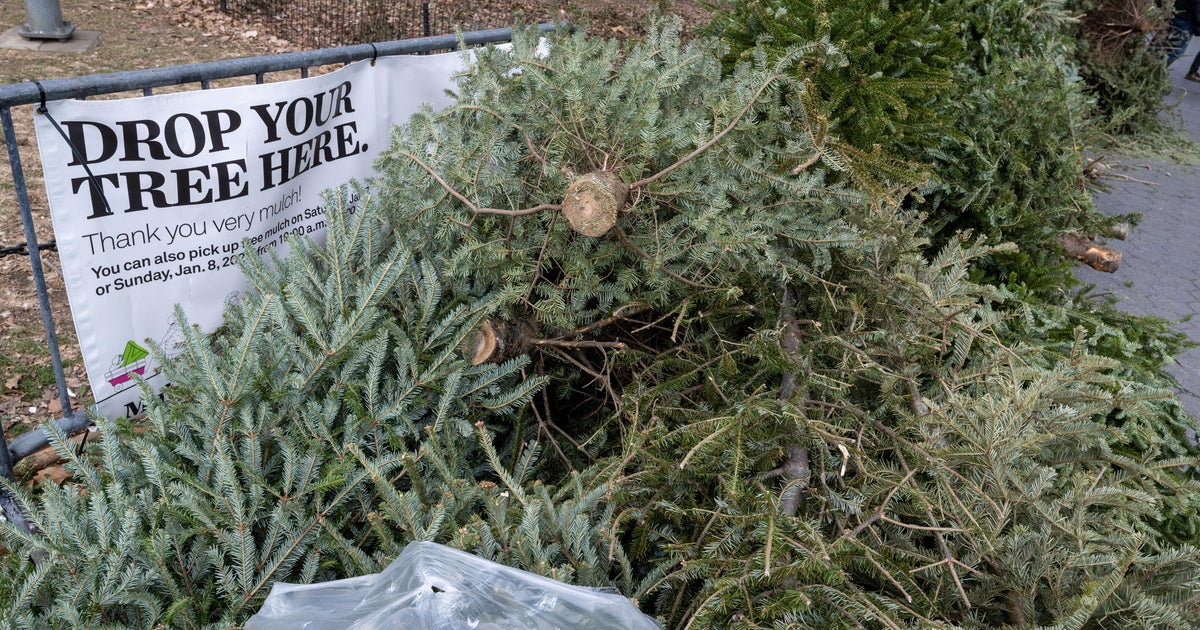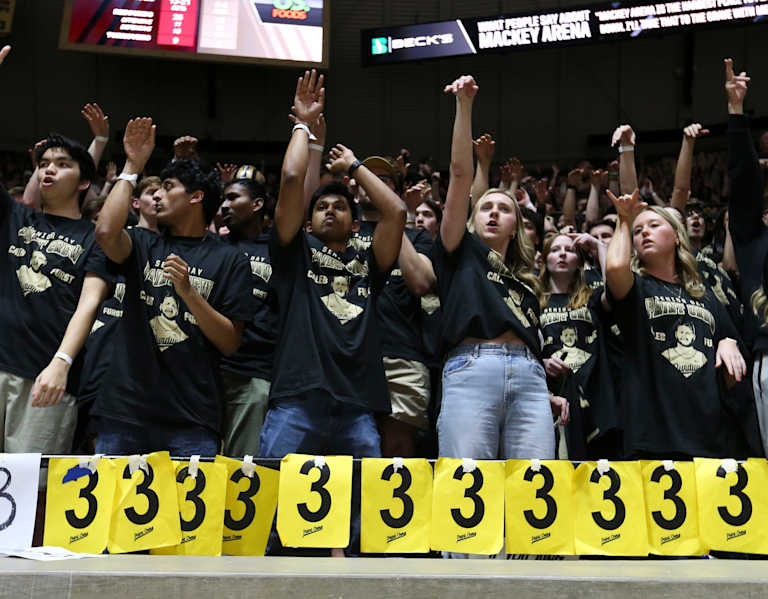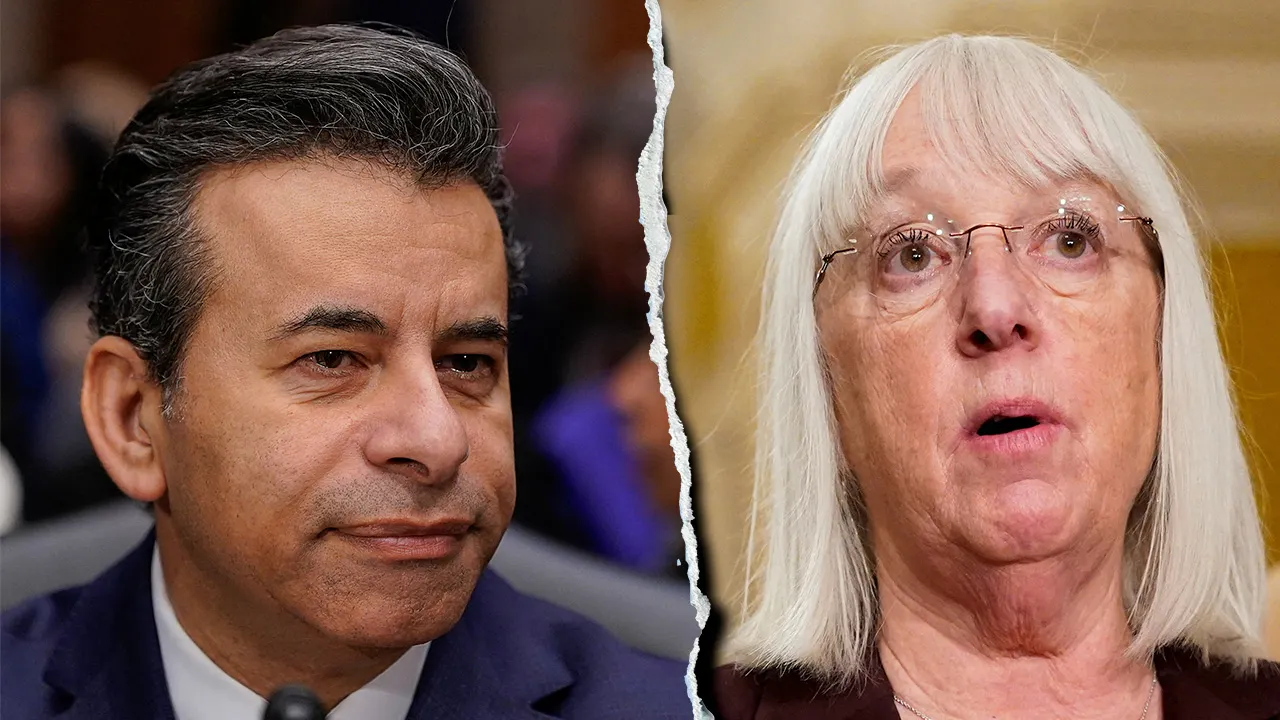World
Meet the team crafting pencils out of recycled newspapers in Kenya
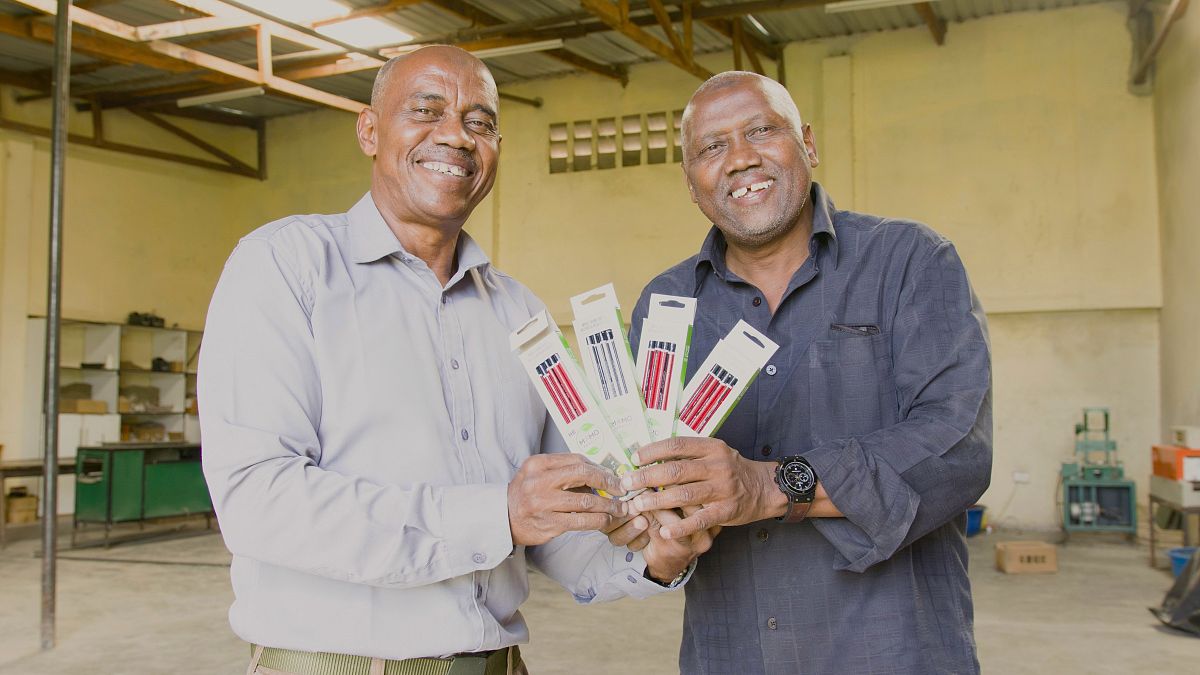
SCENES shines a spotlight on youth worldwide, breaking down barriers and creating change. The character-driven short films will inspire and amaze as these young change-makers tell their remarkable stories.
Wood has been utilised for centuries for its affordability and practicality in producing pencils and other stationery supplies. However, despite its seemingly modest financial cost, the negative environmental impact of overusing this versatile material cannot be ignored. The international journal Nature estimates that 15 billion trees are lost yearly due to human-induced activities.
In Kenya, a group of social entrepreneurs came up with a unique solution to transform the pencil manufacturing industry while also contributing to environmental preservation in one of Africa’s least forested nations.
Their solution was turning discarded newspapers into pencils. A concept that, although appearing straightforward, could significantly impact the environment.
Why Pencils?
Mahamud Omari, the CEO of MOMO Pencils, the company leading this environmental revolution, tells SCENES that he and his partners wanted to develop a product that would “empower society.”
When asked about the choice of making pencils, Mahamud explains that they are a crucial tool for achieving success and are used by many individuals, particularly schoolchildren. Furthermore, he adds that the use of discarded newspapers helps to reduce the number of trees being cut down to produce stationery.
Mahamud says that the company’s vision is for their pencils to be a game-changer that can help shape the future of Kenya by inspiring the next generation.
The Proper Pencil
“It took us about two years to actually come up with a proper pencil,” says Rashid Omar, the COO of MOMO Pencils, “to get a pencil, we have to go through about nine different processes,” he adds.
The first step of the production process is collecting and weighing the newspapers. The newspapers are then cut to a specific size and then graphite is added.
The paper is then rolled into a cylindrical shape. The cylindrical paper is subsequently left to dry in the sun for three days, allowing it to achieve the desired texture.
Once the paper has dried, it is polished and cut into the desired size. The final steps of the pencil-making process involves sharpening and packaging the final product.
“Through trial and error,” Rashid says, the company went from producing 100 to 40,000 pencils per day.
Awareness
Mahamud claims that MOMO Pencils are eco-friendly and locally made in Kenya. Yet, many local traders have declined stocking their products.
“They are looking at the profit margin.” Explains Mahamud, “So, when we approach them to sell our product, they say, ‘Your product and this other one have the same function. My customers are looking at the price.’”
Mahamud acknowledges that their product is more expensive than Indian and Chinese wooden pencils, and in order to suceed, they need to create better brand awareness.
To accomplish that, he strives to align the company’s identity with the principles of the three ‘R’s: Recycling, Reducing, and Reusing.
“In recycling, we recycle the newspapers that are brought in.” Says Rashid, “Reducing is reducing waste in the environment. The third ‘R’ is Reusing, by turning that newspaper into a pencil usable to the public.” He adds.
Giving back to Kenya
Mahamud says that the company is on a mission to provide underprivileged children in Kenya with pencils. He wants to improve education standards of these children and ensure equal access to academic necessities.
“A pencil may look like something very cheap, but to a family that is struggling to put food on the table, the parents have to decide: Do we eat, or do we buy a pencil?” says Mahamud.
“We have given a lot of donations to neighbouring communities. They embraced this because they know it’s for a good cause,” adds Rashid.
In addition to donations, Mahamud and his partners have been able to provide employment opportunities for the people in their city. “We have 25 employees working full time,” Mahamud says, “so that they can sustain their families and their children.”
‘Hope for Literacy’
Aside from selling pencils, the organisation has launched a social campaign called ‘Hope for Literacy’, where a portion of the company’s profits are donated to their community.
“We also do a lot of tree planting in the schools,” says Mahamud, “so the campaign itself really aligns with the vision of the brand. A pencil that changes the world, through that pencil we plant trees.”
Despite the rise of online newspapers, MOMO Pencils is committed to a sustainable future, maintaining its eco-friendly methods by looking for alternatives to make its pencils while extending its product line in Kenya.

World
Kelsey Grammer Slams Paramount+ for Frasier Cancellation: ‘They Didn’t Really Promote It’

ad
World
Pope Francis in stable but 'guarded' condition, according to Vatican
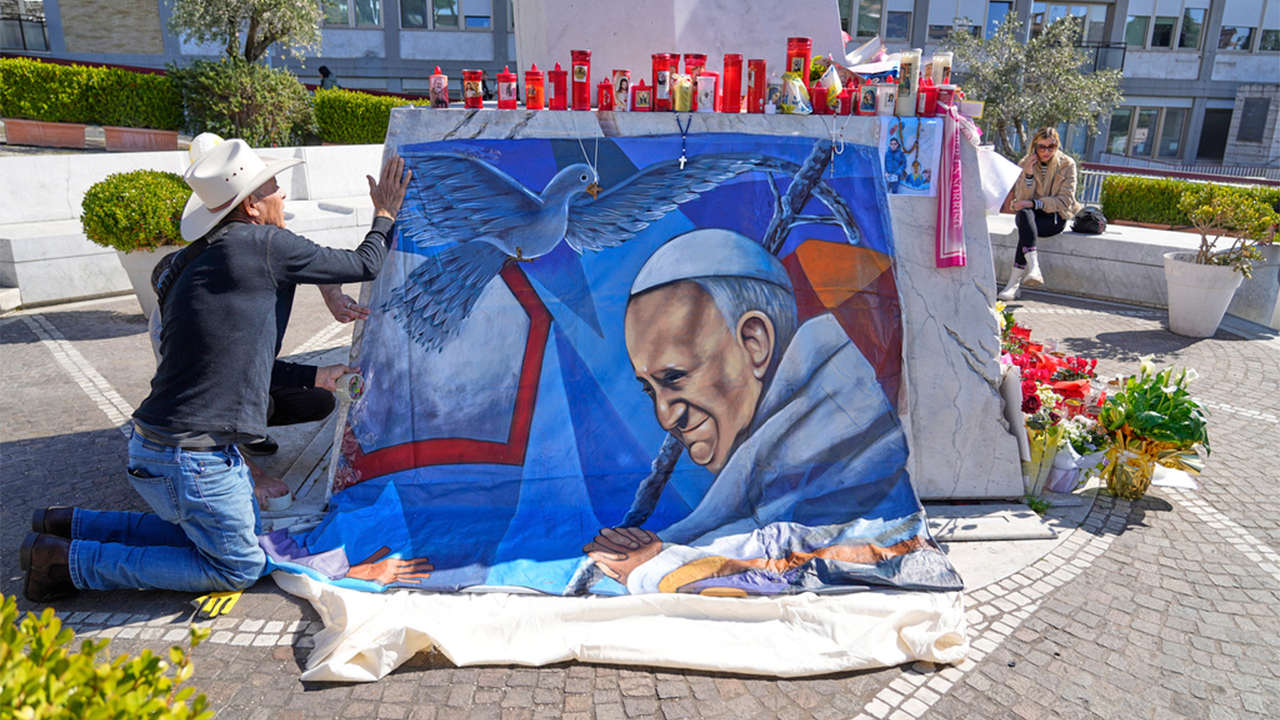
Pope Francis’ condition remained stable and “guarded” Thursday, a day when the pontiff did not have difficulty breathing and remained fever-free.
The pope had a “good night” and continued physical therapy at Rome’s Gemelli hospital for his third week of treatment for double pneumonia, the Vatican said Thursday.
“Today, the Holy Father dedicated himself to some work activities during the morning and afternoon, alternating rest and prayer,” the Vatican said. “Before lunch, he received the Eucharist.”
The next update will come Saturday, the Vatican said, because of his stable condition.
CHRISTIANS USE HALLOW APP’S PRAY40 CHALLENGE AMONG OTHER TRADITIONAL WAYS TO GROW CLOSER TO GOD AS LENT BEGINS
Pope Francis waves from the central loggia of St. Peter’s basilica during the Easter ‘Urbi et Orbi’ message and blessing to the City and the World as part of the Holy Week celebrations, in the Vatican on March 31, 2024. (Tiziana Fabi/Pool/AFP/Getty)
“The night passed quietly; the Pope is still resting,” the Holy See press office said earlier Thursday, adding that the Pope’s “clinical condition has remained stable for the last couple of days, and his doctors say he has not had more episodes of respiratory insufficiency.”
The 88-year-old pope, who has chronic lung disease and had part of one lung removed as a young man, has been stable for two days after suffering a pair of respiratory crises on Monday. Doctors underlined that his prognosis remained guarded due to the complex picture.
In recent days, he has been sleeping with a non-invasive mechanical mask to guarantee that his lungs expand properly overnight and help his recovery. He has been transitioning to receiving oxygen with a nasal tube during the day.
The pope on Wednesday marked the start of Lent by receiving ashes on his forehead and by calling the parish priest in Gaza, the Vatican said. He also added physical therapy to his hospital routine of respiratory therapy.
The Catholic Church opened the solemn Lenten season without the pope’s participation. A cardinal took his place leading a short penitential procession between two churches on the Aventine Hill and opened an Ash Wednesday sermon prepared for the pontiff with words of solidarity and thanks.
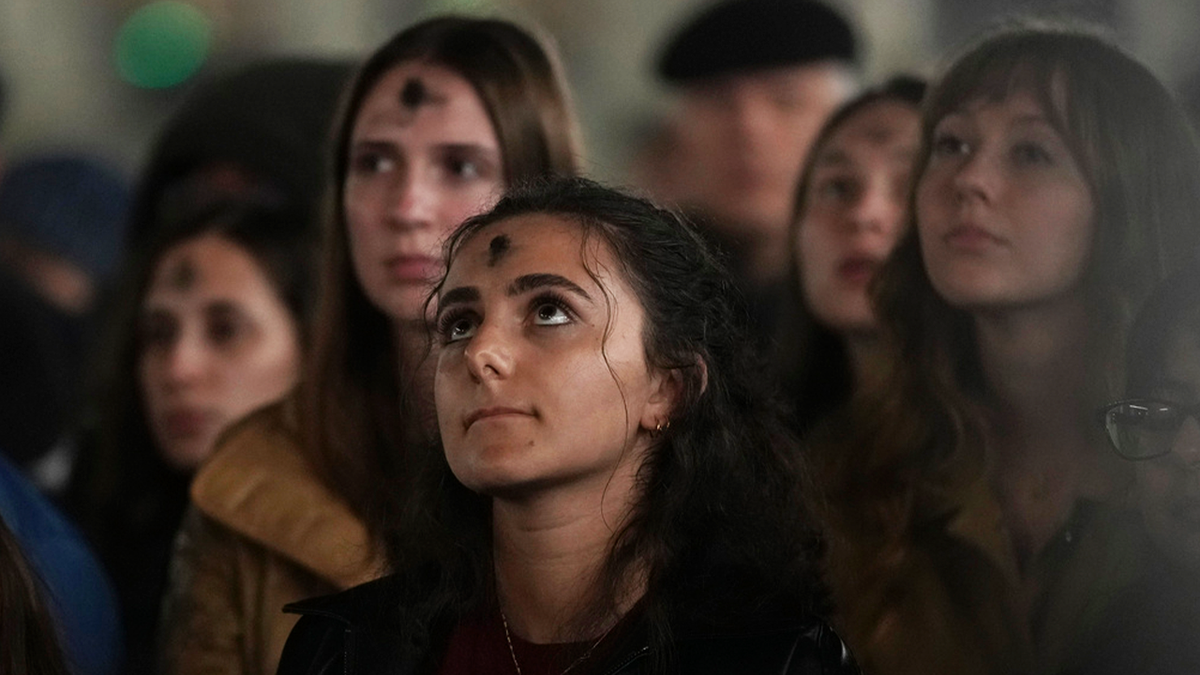
Girls, with ashes on their foreheads, pray during a rosary prayer for Pope Francis’ health in St. Peter’s Square at the Vatican, Wednesday, March 5, 2025. (AP Photo/Alessandra Tarantino)
On Ash Wednesday, observant Catholics receive a sign of the cross in ashes on their foreheads, a gesture that underscores human mortality. It is an obligatory day of fasting and abstinence that signals the start of Christianity’s most penitent season, leading to Easter on April 20.
The pope was supposed to attend a spiritual retreat this weekend with the rest of the Holy See hierarchy. On Tuesday, the Vatican said the retreat would go ahead without Francis but in “spiritual communion” with him. The theme, selected before Francis got sick, was “Hope in eternal life.”
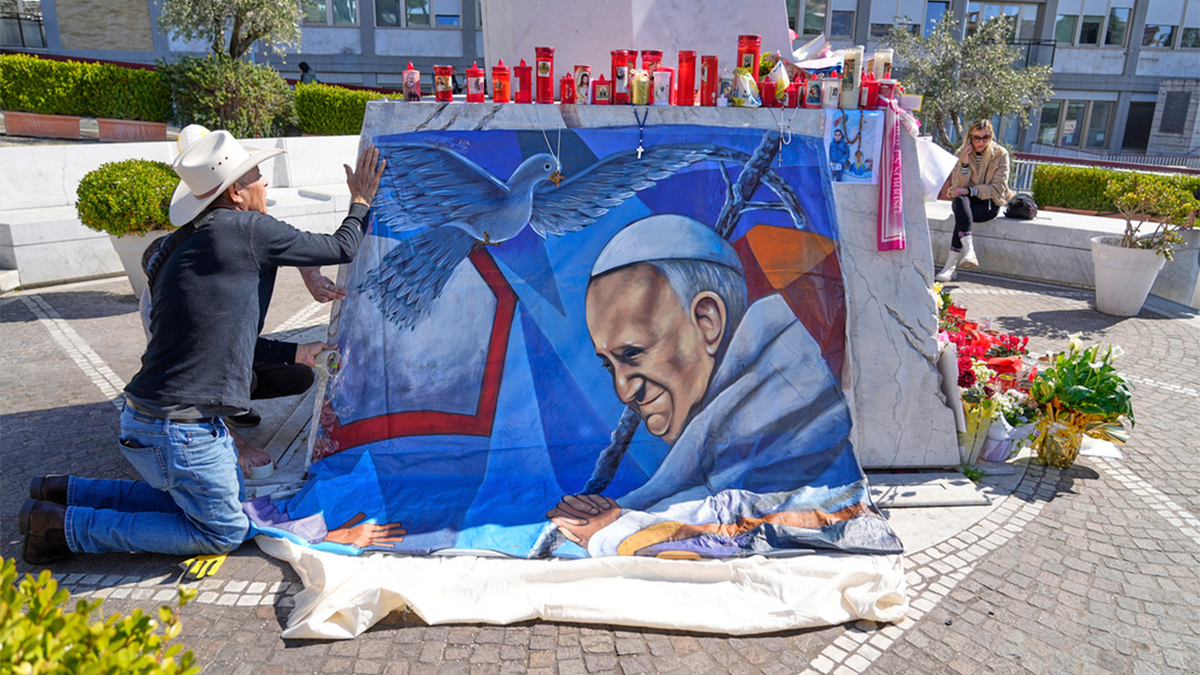
Mexican painter Roberto Marquez places a painting of Pope Francis he made outside the Agostino Gemelli hospital in Rome on Ash Wednesday. (AP Photo/Gregorio Borgia)
The Associated Press contributed to this report.
World
Trump again spreads baseless claims about Trudeau, Canada’s election

US president accuses outgoing Canadian prime minister of seeking to use issue of tariffs to extend his time in office.
United States President Donald Trump has reiterated baseless claims that outgoing Canadian Prime Minister Justin Trudeau is seeking to use US tariffs against Canada to extend his time in office, as a rift widens between the two countries.
In a social media post on Thursday, Trump said he believed Trudeau “is using the Tariff problem, which he has largely caused, in order to run again for Prime Minister”.
“So much fun to watch!” the US president wrote.
The remark follows a similar post Trump shared on his Truth Social website on Wednesday, accusing Trudeau of using trade tensions as a way “to stay in power”.
“He was unable to tell me when the Canadian Election is taking place, which made me curious, like, what’s going on here? I then realized he is trying to use this issue to stay in power. Good luck Justin!” Trump wrote.
Tensions have soared between the two leaders since Trump first threatened late last year to impose steep tariffs on Canadian goods if Trudeau’s government did not do more to stem irregular migration and drug trafficking over its border with the US.
This week, the Trump administration followed through on its plans and imposed 25-percent tariffs on most Canadian imports, as well as 10-percent levies on oil and gas.
Canada responded by announcing it would be implementing 25-percent tariffs against $106bn (155 billion Canadian) worth of US goods. Tariffs on $21bn (30 billion Canadian) came into immediate effect on Tuesday.
“This is a very dumb thing to do,” Trudeau told reporters on Tuesday of the US measures, which he described as an unjustified “trade war against Canada”.
Trudeau, who has been Canada’s prime minister since 2015, is set to step down as leader of the governing Liberal Party after it chooses its next leader on Sunday.
The new leader is expected to assume the duties of prime minister after a short transition period.
Asked during a news conference on Thursday whether he would consider staying on as prime minister in a caretaker role to help manage the uncertainty surrounding US tariffs, Trudeau said: “No. I will not be.”
He added, “I look forward to a transition to my duly elected successor in the coming days or week.”
Meanwhile, some experts in Canada have said Trump’s attack on Trudeau underscores his ignorance of the country’s political system.
Stewart Prest, a political science professor at the University of British Columbia, said on social media that the US president’s remarks represent “a reckless disregard for the Canadian democratic system”.
“To be clear, Trudeau will step aside after the Liberal leadership race,” Prest wrote on the social media platform Bluesky on Wednesday.
Under Canadian electoral rules, the next federal election must be held by October 20.
But the Liberals, as the party in government, can choose to trigger a vote before then.
An election could also be called earlier if opposition parties pass a vote of no confidence in Canada’s Parliament, which is set to resume on March 24.
As it currently stands, no election date has been formally set.
“Parliamentary democracy is by design more flexible than the American presidential system, with its fixed election dates,” Prest explained.
“That’s deliberate, as it makes it much easier to get rid of a leader who is either unfit or unpopular – or both.”
Many experts have speculated that the Liberals may choose to call a vote shortly after their next leader is chosen in an effort to capitalise on a recent upswing in public support.
At the beginning of the year, the Liberals had been trailing the opposition Conservatives by as many as 26 percentage points.
But Trudeau’s decision to resign – coupled with the race to select his replacement as Liberal leader and Trump’s threats against Canada – have helped the party bounce back in the polls.
-

 Sports1 week ago
Sports1 week agoNHL trade board 7.0: The 4 Nations break is over, and things are about to get real
-

 News1 week ago
News1 week agoJustice Dept. Takes Broad View of Trump’s Jan. 6 Pardons
-

 World1 week ago
World1 week agoHamas says deal reached with Israel to release more than 600 Palestinians
-

 Science1 week ago
Science1 week agoKilling 166 million birds hasn’t helped poultry farmers stop H5N1. Is there a better way?
-

 News1 week ago
News1 week agoChristianity’s Decline in U.S. Appears to Have Halted, Major Study Shows
-
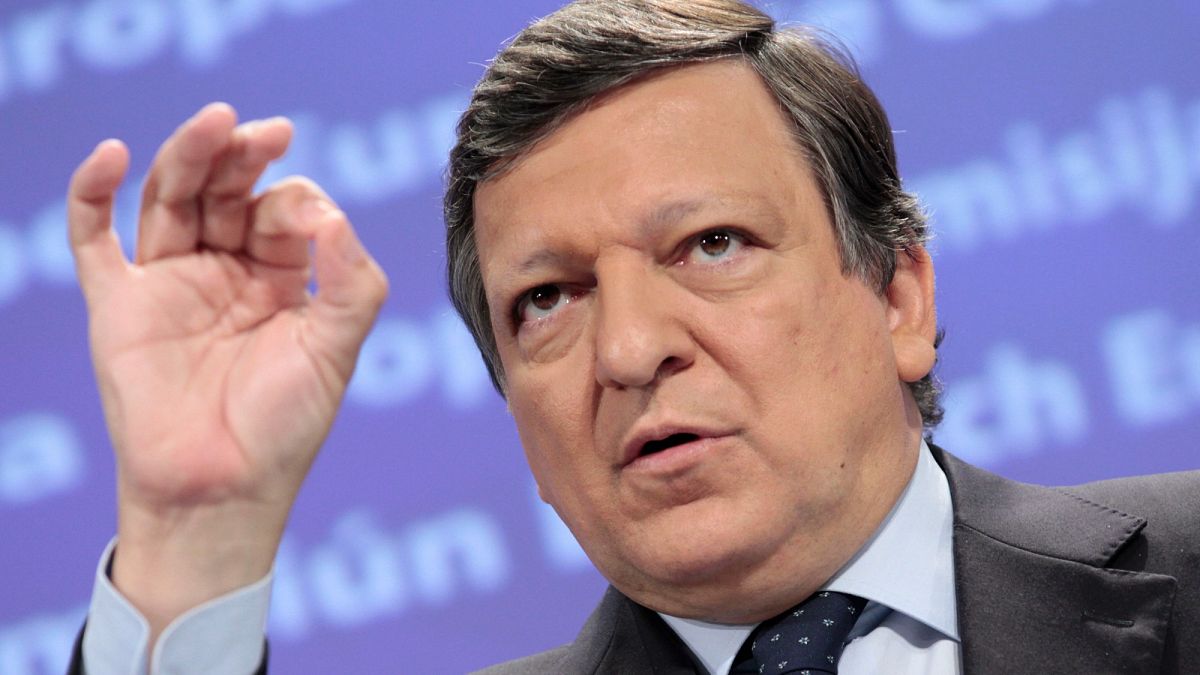
 World1 week ago
World1 week agoGermany's Merz ‘resolute and determined,' former EU chief Barroso says
-

 Technology1 week ago
Technology1 week agoMicrosoft makes Copilot Voice and Think Deeper free with unlimited use
-

 Politics1 week ago
Politics1 week agoSome Republicans Sharply Criticize Trump’s Embrace of Russia at the U.N.



